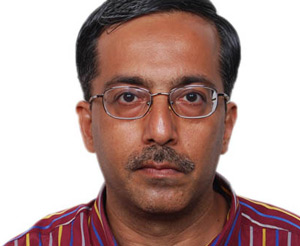
The Domestic Violence episode, telecast on June 17, 2012, received an overwhelming response. Many viewers wrote in, with accounts of violence and abuse suffered by them and their loved ones. The show opened a floodgate of emotions on an issue few even like to acknowledge. The reactions also revealed how widespread domestic abuse is, across social and economic strata.
A software professional wrote in saying it took her six years to walk out of an abusive marriage, although she had the means to support herself. “I continued to tolerate physical assault every now and then, which left me bleeding,” she said. “Sometimes folks in office asked me why my skin was blue and I used to make vague excuses. I endured this thinking that I should protect my marriage.” Another woman said she tolerated an abusive marriage for seven years until her husband tried to strangle her. She walked out with her children, enrolled herself in a beautician's course and learned to stand on her own feet. She later remarried and is today a "happy person".
Equally overwhelming were mails from viewers who wrote in saying the episode was one-sided. One viewer said, "Kindly look into the conditions of men who are going through harassment in the institution of marriage. It would be great if you could also focus on the plight of men. At least there are various laws to protect women, but no such laws for men. It is not always the women who are being tortured."
Another viewer said, “I am very disappointed by your episode. The conclusion is that all the domestic violence is only carried out by husbands on their wives and not vice-versa, which is completely baseless.” Many viewers specifically referred to the misuse of the law against dowry, Section 498A of the IPC. Under this law, a married woman who has been subjected to physical and psychological harassment at home can register a case against her husband and in-laws and it will be seen as a cognizable offence.
We put these questions to activist Harish Sadani, founder of MAVA, Men Against Violence and Abuse, an organization comprising of men working to stop and prevent gender-based violence against women. Sadani said the laws to protect women against domestic violence and sexual harassment need to be implemented with greater care.
"All the laws are meant for protection of women’s rights, including Section 498A, The Protection of Women from Domestic Violence Act 2005 (PWDVA) or the latest Sexual Harassment of Women at Workplace (Prevention, Prohibition and Redressal) Act, 2013, are in consonance with the provisions of the Constitution of India,” says Sadani. “Numerous men’s groups may not like to accept that India is a male-dominated society, which accords women a secondary status. But there are umpteen examples of gender discrimination and injustice that the average woman goes through, and domestic violence is only one of these."
Sadani accepts that there may be a small percentage of misuse, but he points to the "lack of proper implementation by authorities who have the responsibility of thoroughly investigating and registering any offence. Progressive legislation is one of the tools for change, but what is equally required is a mindset that looks at the situation with sensitivity and works for an enabling environment to ensure effective implementation of the laws. Sadly, that is lacking when one looks at the false uproar on laws meant for protection of women’s rights. Numerous men’s groups may not like to accept that India is a male-dominated society, which accords women a secondary status. But there are umpteen examples of gender discrimination and injustice that the average woman goes through, and domestic violence is only one of these."